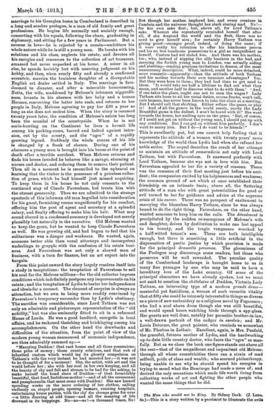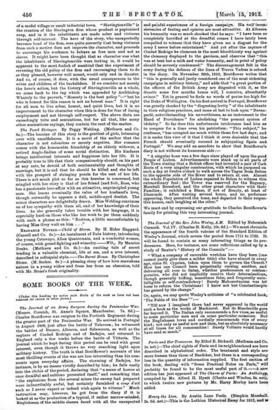The Man who would net be King. By Sidney Dark.
(I. Lane. 6s.)—This is a story written by a pessimist to illustrate the evils
of a model village or small industrial town. " Slavingtonville " is the creation of the Slavington firm whose product is peptonized soup, and in it the inhabitants are made sober and virtuous
through self-interest. The hero of the story, who unexpectedly
becomes head of the firm, sees quite correctly t:mt being virtuous from such a motive does not improve the character, and proceeds to encourage his workmen to behave as free men and not as slaves. It might have been thought that as character was what the inhabitants of Slavingtonville were lacking in, it would be apparent to the most foolish of mankind that the experiment of reversing the old policy of the firm and encouraging them to do as they pleased, however well meant, would only end in disaster. And so, of course, it does, with the tumid consequences to the wives and children of the backsliders. If we consider not merely the hero's action, but the history of Slnvingtonvillo as a whole, we come back to the tag which was appended by Archbishop Whately to the proverb, " Honesty is the best policy "—" but he who is honest for this reason is not an honest man." It is right for all men to live sober, honest, and quiet lives, but it is no improvement to the character when this is done for fear of losing employment and not through self-respect. The above dicta are exceedingly trite and sententious, but for all that, like many other sententious sayings, they contain the root of the matter.















































 Previous page
Previous page